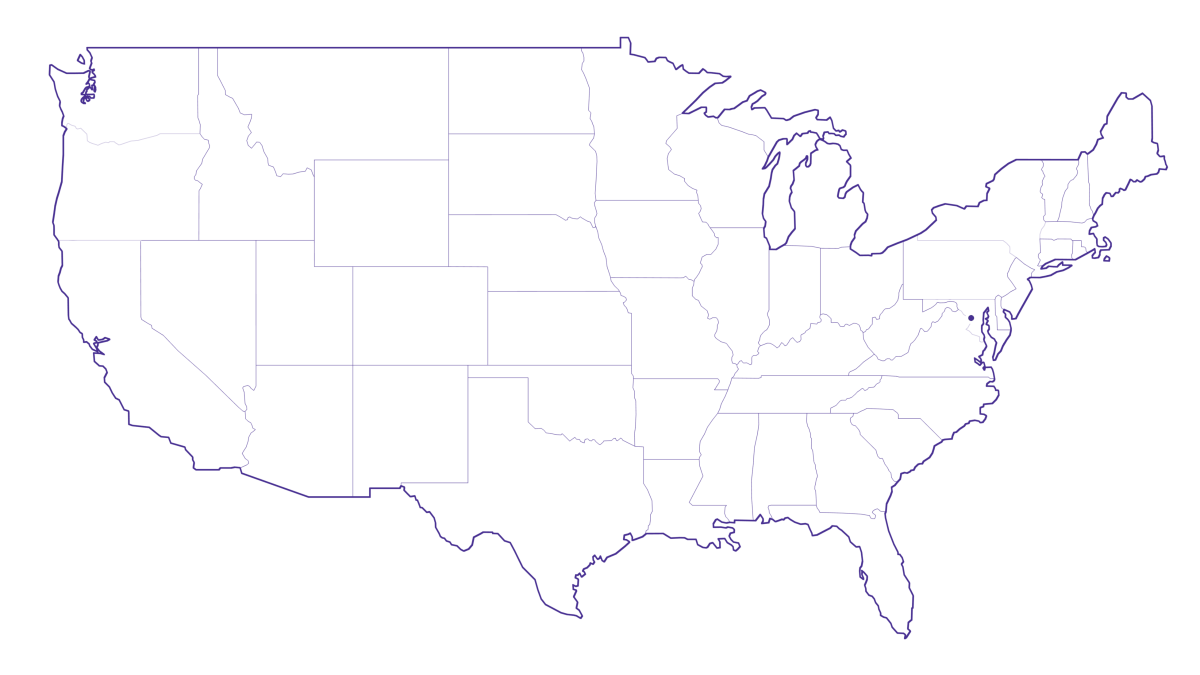Internet speed for gaming: No-lag playbook

Each person gaming online needs at least 25 Mbps to 100 Mbps download and 5 Mbps to 20 Mbps upload speeds. The type of game, the number of players and devices involved and internet latency will be your most significant concerns when selecting an internet speed for gaming.
For the best gaming experience, we recommend Gigabit internet on a cable or fiber connection with a dedicated gaming router to prioritize network traffic and optimize performance.
In this article, we’ll look at the different speeds available to help you determine the best speed for your gaming needs.
What you'll learn:
-
- What is the best internet for gaming?
- Comparison of internet connection types for gaming
- What is a good download and upload speed for gaming?
- What is a good internet speed for gaming?
- What to know about internet speed for live streaming
- Gaming in an apartment vs. a house
- Best WiFi experience for gaming
- Optimize your internet speed
- Secure your home internet
- Conclusion
- Frequently asked questions
- Looking for more topics?
What is the best internet for gaming?
The type of internet connection you choose directly impacts your speeds, latency and online gaming experience. The ideal connection minimizes lag, prevents packet loss and ensures consistent performance whether you are casually or competitively gaming. The following internet connections are available for gaming online:
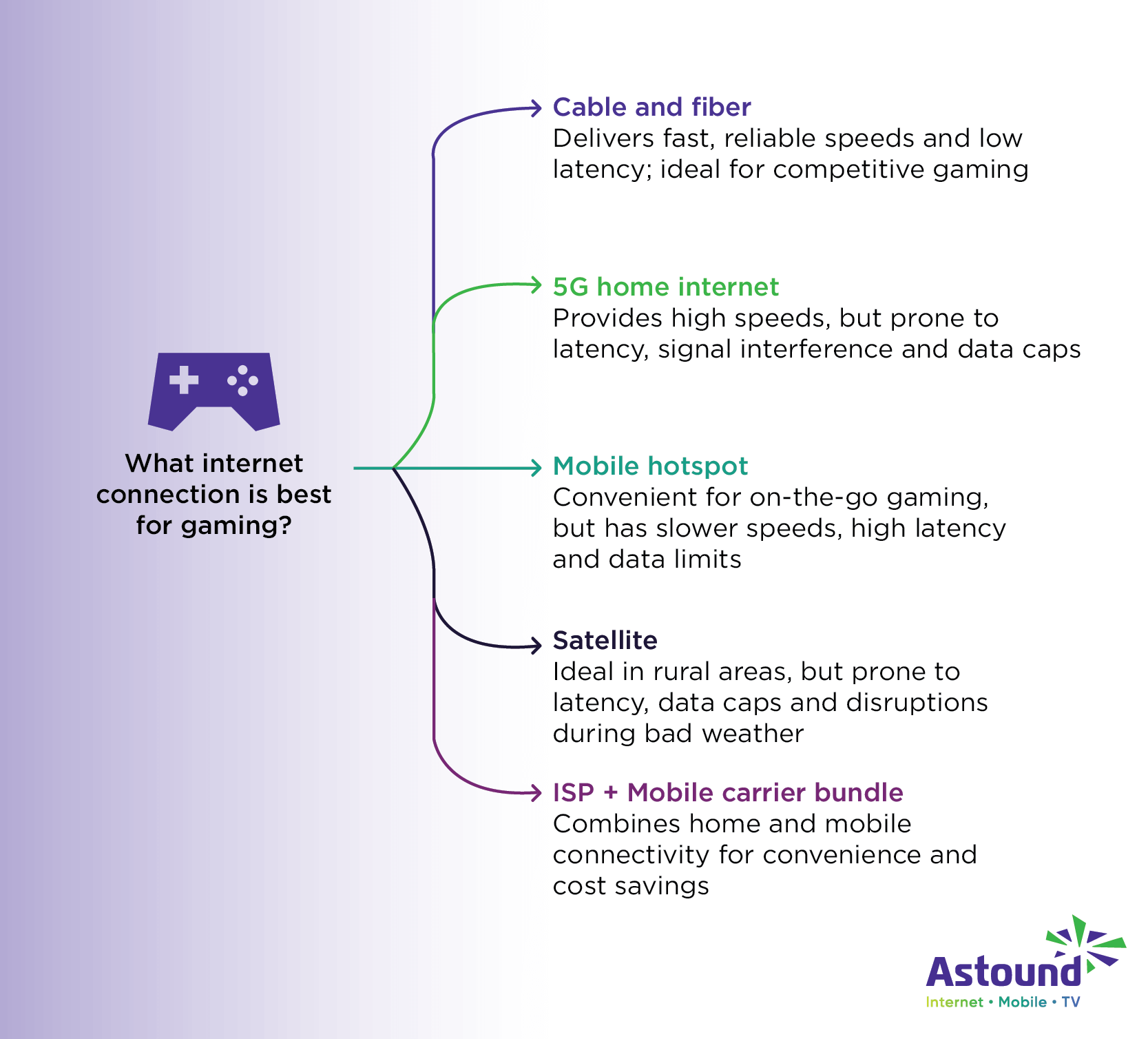
1. Cable and fiber-powered
Cable and fiber are wired broadband technologies that provide fast, reliable and consistent internet speeds.
Cable uses cable infrastructure to transmit internet data, while fiber transmits data as light pulses using fiber optic lines. Both offer faster download and upload speeds, lower latency and consistent connections, making them ideal for gaming and streaming games on cloud gaming platforms.
For a more stable setup, connect your gaming console or PC directly to the wireless router using an Ethernet cable.
Astound’s fiber-powered internet plans offer fast Gigabit speeds with low-latency performance for households balancing online gaming, 4K resolution streaming and remote work.
2. 5G home internet
5G home internet is a wireless connection that transmits high-frequency signals through 5G cell towers.
While it can deliver high speeds for most gaming activities, it is more prone to latency and high ping rates, which are some of the common reasons why your 5G home internet speeds may slow down.
Other factors that affect its performance include:
- Increased distance between devices and 5G cell towers
- Physical barriers such as buildings and trees
- Network congestion during peak hours
- Weather events like storms
Additionally, most 5G providers impose data caps on 5G internet plans to manage network bandwidth across users, which restricts extending your gaming sessions and slows down large game downloads.
If you are a competitive gamer, consider wired connection options like cable or fiber internet for more consistent speeds, lower latency and minimal lag or buffering.
Build your plan
Your perfect plan is just a click away
Get the speeds, WiFi, mobile and TV plans you need all at an affordable price. Bundle your services with Astound and see how much you can save.

3. Mobile hotspot
A mobile hotspot on your phone lets you share your mobile data connection with other devices when your home WiFi is down or when you need connectivity while on the move.
Like 5G home internet, a mobile hotspot relies on cellular networks to transmit wireless signals, which also introduces latency, high ping counts and lag during gameplay.
Limitations of mobile hotspots include slower speeds than wired connections, strict data caps on mobile plans and reduced reliability since performance depends on your location and signal strength. A hotspot can also drain your phone’s battery quickly and restrict the number of devices you can connect at once. While tethering may work for casual gaming, competitive gamers will notice the difference in stability and speed.
4. Satellite
Satellite internet is a viable internet option for people living in rural or remote areas where other internet connections like cable, fiber and 5G internet are not available.
However, satellite internet comes with limitations:
- Higher latency and ping rates
- Data caps issued by internet service providers
- Interruptions due to adverse weather conditions
Gamers can use satellite internet for casual gaming or role-playing games (RPGs). Still, it might not be the best option for fast-paced or competitive multiplayer games.
5. ISP + Mobile carrier
Bundling home internet and mobile carrier services into a single plan provides both reliable home connectivity for gaming and mobile connectivity to play while on the go. This option works well for households that want the convenience of a single bill and the flexibility of multiple services.
Save on your internet costs by bundling Astound’s Gig internet with cell phone plans to get the reliable internet speeds you need for gaming on one of the nation’s largest, fastest and most reliable 5G networks at an affordable price.
Find your speed
What speed do you need?
Maybe you just need the essentials—or maybe you need to unleash the ultimate internet speed. Explore your options to get the best experience for every device in your home.
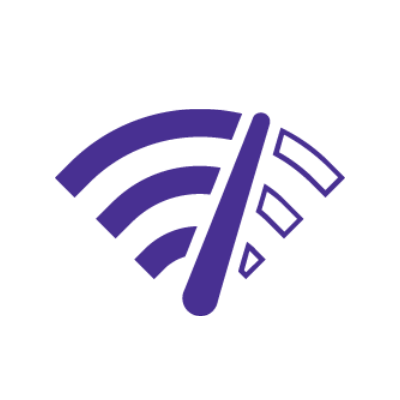
Comparison of internet connection types for gaming
The table below compares the most common internet types, highlighting how each impacts speed, latency and overall gaming performance.
| Connection type |
Typical download speed | Latency |
Data caps |
Best for |
Limitations |
|---|---|---|---|---|---|
| Fiber | 300 Mbps – 5 Gbps+ | 10 to 20 ms | None | Reliable for both casual and competitive gaming, as well as HD and 4K game streaming. | Limited availability in rural areas. |
| Cable | 100 Mbps – 1 Gbps+ | 10 to 40 ms | Rare | Reliable for both casual and competitive gaming, as well as HD and 4K game streaming. | Can be slow during peak hours (network congestion) |
| 5G Fixed Wireless | 50 – 500 Mbps | 20 to 40 ms | Often | Casual & mobile gaming | Performance fluctuations due to signal interference by walls, weather, distance from the cell tower and network congestion. |
| DSL (Digital Subscriber Line) | 10 – 100 Mbps | 30 to 70 ms | Often | Casual & mobile gaming | Outdated, limited speeds and bandwidth capacity. |
| Satellite | 12 – 250 Mbps | 600 to 700 ms | Strict | Casual/RPG gaming in rural areas | High latency and signal interference from weather events |
| Mobile Hotspot | 10 – 100 Mbps | 50–100 ms | Strict | On-the-go casual and mobile gaming | Drains battery, slow speeds, inconsistent connections and tethering limits |
|
Connection type
Fiber |
Typical download speed
300 Mbps – 5 Gbps+ |
Latency
10 to 20 ms |
Data caps
None |
Best for
Reliable for both casual and competitive gaming, as well as HD and 4K game streaming. |
Limitations
Limited availability in rural areas. |
|
Connection type
Cable |
Typical download speed
100 Mbps – 1 Gbps+ |
Latency
10 to 40 ms |
Data caps
Rare |
Best for
Reliable for both casual and competitive gaming, as well as HD and 4K game streaming. |
Limitations
Can be slow during peak hours (network congestion) |
|
Connection type
5G Fixed Wireless |
Typical download speed
50 – 500 Mbps |
Latency
20 to 40 ms |
Data caps
Often |
Best for
Casual & mobile gaming |
Limitations
Performance fluctuations due to signal interference by walls, weather, distance from the cell tower and network congestion. |
|
Connection type
DSL (Digital Subscriber Line) |
Typical download speed
10 – 100 Mbps |
Latency
30 to 70 ms |
Data caps
Often |
Best for
Casual & mobile gaming
|
Limitations
Outdated, limited speeds and bandwidth capacity. |
|
Connection type
Satellite |
Typical download speed
12 – 250 Mbps |
Latency
600 to 700 ms |
Data caps
Strict |
Best for
Casual/RPG gaming in rural areas |
Limitations
High latency and signal interference from weather events |
|
Connection type
Mobile Hotspot |
Typical download speed
10 – 100 Mbps |
Latency
50–100 ms |
Data caps
Strict |
Best for
On-the-go casual and mobile gaming |
Limitations
Drains battery, slow speeds, inconsistent connections and tethering limits |
What is a good download and upload speed for gaming?
Having a good internet speed is essential for online gaming. Download speeds, upload speeds and data usage all play a role in your gaming experience. According to Ookla’s 2025 Speedtest Global Index Report, the average fixed broadband speed in the U.S. is 287.59 Mbps download and 51.83 Mbps upload, more than enough to handle casual and competitive gaming and HD and 4K gameplay streaming. Let’s explore what each factor means and why it matters for gaming.
Download speed
Download speed is the rate at which your device receives data from the internet in Megabits per second (Mbps).
The minimum download speed required for gaming determines how quickly your device can receive data from game servers. Fast download speeds allow you to download game files and updates faster, access content quickly and enjoy smoother online gameplay.

Upload speed
Upload speed is the rate at which data is transmitted from your device to the internet in Megabits per second.
Does upload speed affect gaming? Yes, upload speed is critical for online gaming, especially multiplayer games and live streaming gameplay on Twitch or YouTube in 1080p or 4K resolution. It ensures real-time responses for the in-game actions and determines the video quality of the content you are streaming.
Keep in mind, your ISP’s advertised upload speed may differ from the actual rate you experience due to factors like network congestion, speed throttling or equipment issues.
Data
Data refers to the amount of information transferred over your internet connection. It is measured in Megabytes (MB), Gigabytes (GB) and Terabytes (TB).
So, how much internet data do I need for gaming? It depends on the type of game, how long you play and your platform. For example, downloading large game files or streaming gameplay in 1080p and 4K consumes far more data than mobile gaming.
Gamers on plans with strict data caps, common with 5G home internet, satellite and mobile hotspot plans, need to pay attention to their data usage as exceeding limits can throttle their speeds, causing lags, buffering and shortened gaming sessions.
On the other hand, most wired internet connections, including cable and fiber, offer plans with unlimited or higher data allowances, so you don’t have to worry about what happens when you exceed your data allowance.
most popular resource
Optimize your internet speed
Is WiFi interference slowing your internet speeds? Here are a few tips to optimize and maximize your home’s high speed internet performance.

What is a good internet speed for gaming?
A good internet speed that is ideal for your gaming needs depends on the type of game, the gaming platform and the gaming device used.
The minimum internet speeds for different gaming devices include:
| Gaming type | Minimum download | Minimum upload |
|---|---|---|
| PC gaming | 20 to 50 Mbps | 5 to 10 Mbps |
| Console gaming | 50 to 100 Mbps | 10 to 20 Mbps |
| Mobile gaming | 5 to 20 Mbps | 2–5 Mbps |
| VR gaming | 300 to 400 Mbps | 50+ Mbps |
| Cloud Gaming | 15 to 25 Mbps | 5 to 10 Mbps |
|
Gaming type
PC gaming |
Minimum download
20 to 50 Mbps |
Minimum upload
5 to 10 Mbps |
|
Gaming type
Console gaming |
Minimum download
50 to 100 Mbps |
Minimum upload
10 to 20 Mbps |
|
Gaming type
Mobile gaming |
Minimum download
5 to 20 Mbps |
Minimum upload
2–5 Mbps |
|
Gaming type
VR gaming |
Minimum download
300 to 400 Mbps |
Minimum upload
50+ Mbps |
|
Gaming type
Cloud Gaming |
Minimum download
15 to 25 Mbps |
Minimum upload
5 to 10 Mbps |
Remember, these are minimum speed requirements and the needs of specific devices can vary based on the type of game.
To maximize internet speeds for the best gaming performance, connect your devices directly to the router using an Ethernet cable or, better yet, get a gaming router. A dedicated gaming router with quality of service (QoS) settings can help reduce lag, prioritize gaming traffic and improve latency.
Mobile gamers can improve mobile data speeds by adjusting their device settings and optimizing data usage for a smoother gaming experience.
Let’s break down what different internet speed ranges can help you achieve.
1500 Mbps - 1000 Mbps
Internet speeds in this range are known as Gigabit internet speeds, which support multiple users, devices and bandwidth-heavy activities simultaneously.
For example, in a household with six users, a Gigabit connection provides enough speed and bandwidth to support tasks such as:
-
- Users A and B are gaming online on separate consoles: 200 Mbps
- User C is on VR gaming: 400 Mbps
- User D is streaming 4K content on a desktop: 100 Mbps
- User E is gaming on a mobile device: 10 Mbps
Aside from gaming, other activities might be taking place in the background, such as:
-
- Six devices are streaming content at 25 Mbps each: 150 Mbps
- Users E and F are working online from home: 200 Mbps
- Smart devices connected: 100 Mbps
Altogether, these tasks require around 1.16 Gbps. To account for unexpected guests, increased gaming demands or other additional online activities, consider higher speeds like 1.5 Gbps to handle these activities sufficiently.

600 Mbps - 300 Mbps
An internet connection with this speed range is enough to handle moderate gaming requirements.
For example, in a household of three to five users, this range can support the following tasks:
-
- User A playing on a gaming console: 100 Mbps
- User B and C gaming on a separate PCs: 40 Mbps
- User C live streaming 4K content: 100 Mbps
In the background, other activities using the internet may include:
-
- User D working from home: 100 Mbps
- Four devices streaming music and videos at 25 Mbps each: 100 Mbps
- User E learning remotely: 25 Mbps
- Smart devices connected: 100 Mbps
These tasks add up to 565 Mbps. If you are concerned about multiple users, devices or increased activities straining your internet, consider Gigabit internet plans to accommodate additional users or tasks when needed.
100 Mbps
A 100 Mbps internet connection can handle some gaming activities for one or two users in a household.
With 100 Mbps speeds, you can:
-
- Download game files and updates.
- Play online multiplayer or RPGs at a moderate pace.
- Stream some gameplay content to audiences.
Consider higher speed plans if you’re a competitive gamer or professionally stream 4K and 8K gaming content to audiences. Wired connections like fiber can provide fast symmetrical speeds and bandwidth that offer stability and low latency needed to enhance your gaming experience and that of your audience.
Fiber-powered internet
Why Fiber Internet works better
Astound’s fiber-powered internet provides consistent speeds throughout the day versus 5G Home Internet which is prone to intermittency.
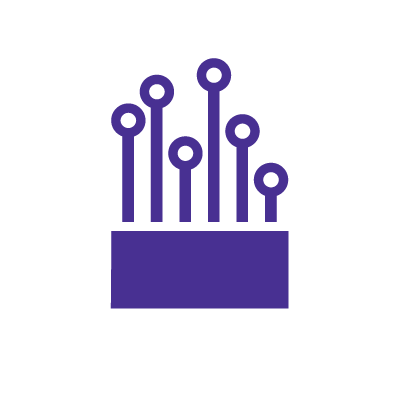
What to know about internet speed for live streaming
In live streaming, upload speed is critical because data is transmitted from your device(s) to the streaming server. A strong upload speed determines how reliable, clear and audible your stream is to your online audience.
However, upload speed is not the only essential factor. Cloud gaming platforms, such as NVIDIA GeForce Now, require 45 Mbps download for 4K resolution, 35 Mbps for QHD and FHD and 15 to 25 Mbps for HD streaming. They also require latency to be under 80ms from an NVIDIA data center, but recommend less than 40ms for the best streaming experience.
Professional streamers and students streaming full-time can achieve high streaming quality with a symmetrical internet connection that delivers equal download and upload speeds. For example, a 600 Mbps internet plan provides 600 Mbps download and 600 Mbps upload speeds.
Symmetrical speeds give streamers the bandwidth needed for smooth, high-quality gameplay and real-time interaction on platforms like Twitch, YouTube and Discord.
Gaming in an apartment vs. a house
Deciding on which speed to choose depends not only on your gaming requirements but also on where you live. The internet connection type, bandwidth demands and WiFi coverage can differ between staying in an apartment or a house.
In an apartment
Apartment setups are smaller, with one to four users, making WiFi coverage more accessible. Choosing the best internet speed for your gaming needs in an apartment is dependent on a few factors, including:
- Number of users and devices: For one to four users, a 300 to 600 Mbps internet speed is usually sufficient. If you have multiple devices per person and frequently have guests, higher speed tiers may be necessary.
- Distance from the router: Place your WiFi setup centrally to ensure every room has even coverage.
- Available provider options: Options may include cable, fiber or 5G home internet for fast speeds, though some apartment buildings may still be limited to older DSL lines. Always confirm with the property owner and local providers to understand which internet options are available.
- Network congestion: Apartments often share broadband infrastructure within the same building, which can lead to congestion and slower speeds during peak hours.
If you are moving to a new apartment, check out Astound’s guide on how to set up your internet and WiFi in a new apartment
In a house
Houses generally hold more users and devices connected to the internet at once, increasing demand on the network. Consider the following factors when selecting an ideal speed:
- Number of users and devices connected: Consider a high speed Gigabit internet plan to handle multiple users sufficiently.
- Home size and layout: Large houses may have WiFi dead zones with poor internet coverage. Consider introducing a mesh WiFi router to expand your WiFi coverage and improve access across every room.
- Available provider options: In urban and suburban areas, you may have access to faster fiber, cable or fixed wireless internet. Rural homes, however, often rely more on satellite for connectivity. Reviewing provider availability in your area ensures you choose the best option for speed and reliability.
If you’re moving into a house, check out Astound’s guide on how to set up internet and WiFi in your house.
WiFi that just works!
WiFi plans for any home
Tiny, large or somewhere in between; find WiFi coverage to fit any space. Blanket your entire home with a fast and ultra‑reliable connection.
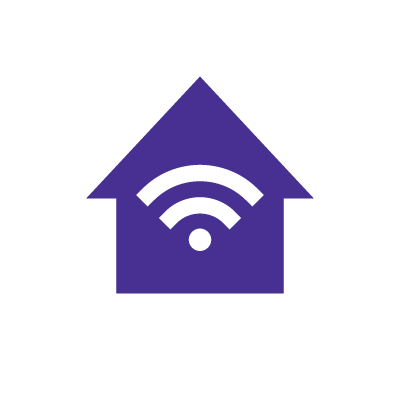
Best WiFi experience for gaming
Having fast internet speeds alone isn’t enough. You also need the right setup to get the best gaming experience. Below are our recommendations to help you optimize your WiFi and gaming equipment for a smoother, more reliable online gameplay.
Gaming router
To get the best out of your internet connection, use a gaming router which provides performance advantages over standard routers for dedicated gamers.
These advantages include:
-
- Quality of Service (QoS): Prioritizes gaming traffic to minimize latency and lag.
- Port forwarding: Directs traffic to specific devices, reducing packet loss and improving connectivity.
- Customizable settings: Allows you to fine-tune performance for different online games.
- Enhanced security: Many models include built-in VPN support to guard against DDoS attacks and provide additional protection.
- User-friendly interface: A graphical control panel makes it easier for non-technical users to adjust QoS and troubleshooting settings.
For a full comparison between router types, check out Astound’s guide on gaming routers vs. normal routers.
For the best performance, ensure your router or modem supports modern WiFi 6 and WiFi 7 standards and regularly update its firmware.
Keep in mind that the actual speeds you receive depend on the model of the gaming device (laptop, cell phone, tablet or console) and the router’s throughput capabilities.
Configure your router for gaming
Configuring your gaming router can significantly improve your gaming performance and the overall quality of service.
The three key settings you can configure on your gaming router include:
- Quality of Service options (QoS): QoS settings allow you to prioritize gaming data over other internet activities through bandwidth allocation or traffic prioritization to minimize ping spikes.
- Ping heat maps: Ping heat maps are a visual representation of latency (ping) that provides real-time data on the ping rates between your gaming device and various gaming servers. It helps you optimize your experience by allowing you to choose the closest servers with the lowest ping.
- Port forwarding: Routes incoming and outgoing game data packets to the correct gaming device to improve connectivity and reduce potential disconnections between your gaming device and game servers.
Optimize your internet speed
Is WiFi interference slowing your internet speeds? Here are a few tips to optimize and maximize your home’s high speed internet performance.
Optimize your wireless speeds
A slow internet speed can cause less responsive character movements or poor stream quality when gaming and streaming online. Fortunately, there are several ways you can optimize your WiFi speeds to improve your internet speeds for gaming.
Three ways to optimize your WiFi speeds include:
-
- Position your router strategically
Place your router centrally in your home to improve WiFi coverage and reduce dead zones. For larger homes, consider Astound’s eero mesh WiFi system, which uses nodes strategically placed across your home for a Whole Home WiFi experience. - Upgrade to faster internet
If multiple users are online simultaneously, upgrading to a Gigabit internet plan ensures you have enough bandwidth and faster download and upload speeds to handle gaming and other bandwidth-heavy activities simultaneously. Faster speeds reduce packet loss and lag spikes, keeping your gameplay consistent. - Power cycle your internet equipment
Restarting your modem and router regularly clears blocked channels and helps reduce internet traffic issues. Power cycling resets the connection between your devices and the network, lowering latency and troubleshooting common performance problems.
- Position your router strategically
Mesh WiFi with
eero Secure
Enhanced Whole Home WiFi uses multiple routers (or eeros®) to boost range, speed and stability. While eero Secure, included at no extra cost, offers parental controls, ad blocking and internet backup for constant connectivity.
Secure your home internet
In competitive gaming, opponents may try to gain an edge to win through tactics like DDoS attacks, stealing gaming credentials and identity theft. Protecting your home network is necessary to ensure safer communication, smoother gameplay and peace of mind.
When you subscribe to Astound’s Gig internet plans, you’ll receive an eero mesh WiFi system, which includes eero Secure with the option to upgrade to eero Plus. These tools offer several features that enhance your home network security and provide a safer online gaming experience.
eero Plus offers features such as:
-
- VPN protection: A secure virtual private network shields your connection during online gaming sessions and helps prevent DDoS attacks.
- Threat detection: Malware and virus scanning stop harmful software from reaching your devices.
- Password manager: Store and protect your gaming account credentials securely.
- Ad blocking: Eliminate distractions for a smoother, lag-free gaming experience.
- Content filters: Restrict inappropriate content and ensure a safer online environment for younger players.
Gaming internet
Get the total gaming solution
How you game is up to you. One thing is clear–you need fast and ultra-reliable internet. Get fiber‑powered internet that delivers Gig speeds no matter what high-bandwidth activity you choose.

Conclusion
Choosing the right internet speed for gaming depends on the type of games you play, your setup and the number of devices and users in your household. While most games can get by with 25 to 100 Mbps download and 5 to 20 Mbps upload speeds, competitive gamers and streamers often need higher Mbps or Gigabit speeds to ensure low latency and high bandwidth.
Wired broadband connections, like cable and fiber, remain the most reliable for gaming, offering consistent speeds, reduced lag and minimal disruptions compared to fixed wireless, satellite and mobile hotspots. Furthermore, pairing your plan with a gaming router, optimizing the router’s settings and configuring your home network’s security improves both performance and safety.
For households with heavy gaming demands, Astound’s fiber-powered Gig plans deliver fast speeds, consistent performance and secure coverage to ensure you have a smooth and safe gaming
Frequently asked questions
What is a good internet speed?
A good internet speed depends on your specific internet needs. For mobile gaming and streaming on one to two devices, 25 to 100 Mbps is sufficient. However, heavy usage like competitive online gaming and 4K streaming on multiple devices requires 100 Mbps to gigabit speeds.
Is 1 Gig internet good for gaming online?
Yes, a Gigabit internet connection provides high download and upload speeds and sufficient bandwidth to facilitate online gaming. It can handle data-heavy tasks such as downloading large game files and streaming high-quality gameplay to audiences.
What's the difference between a gaming router vs a normal router?
The main difference between the two routers is that a gaming router is primarily designed to enhance the gaming experience. It provides additional benefits, such as:
- Prioritization of gaming network traffic.
- Lower latency and game packet prioritization.
- Fast WiFi standards.
- Customization of QoS settings.
- Advanced security features.
Is WiFi 6 good for gaming?
Yes, WiFi 6 provides several advantages that can enhance your gaming experience. These advantages include:
- Faster speeds.
- Improved capacity to handle more devices.
- Backward compatibility for older device models.
- Lower latency and reduced ping.
- Better WiFi coverage and range.
Is 100 Mbps fast enough for gaming?
A 100 Mbps internet connection can handle some gaming activities for one or two users in a household. You can play games on mobile devices or play moderate-paced online multiplayer and RPG games on PC and console.
Is 300 Mbps good for gaming?
Yes, 300 Mbps is good for gaming across multiple devices. It provides enough bandwidth and speeds to play competitive multiplayer games, quick downloads for game files and updates and hosting game servers.
*Internet speeds vary, not guaranteed. Certain equipment may be required. See astound.com for details. Modem req’d. No contracts. Astound Internet is powered by fiber and connected to the premises via coaxial connection or fiber, where available. Delivery methods may vary by area. Subject to availability. Ltd-time offer; subj. to change without notice. Internet speeds under 1 Gig, pricing valid for 12 mos. Gig+ Internet speeds, pricing valid for 36 mos. Add’l fees apply for taxes, surcharges, & data overages, & are subj. to change. For details visit astound.com/fees. Enhanced WiFi or Whole Home WiFi included with Gig+; $5/mo for lower speeds or add’l devices. Regular rates apply after promo ends. Monthly price shown includes discount for enrolling in autopay & e-bill. $10 off/mo w/ bank acct autopay or $5 off/mo w/ credit/debit card autopay. Valid email & enrollment req’d. Must enroll w/in 30 days of order. Discount appears within 3 bill cycles, ends if autopay/e-bill is canceled, svcs change, or acct isn’t in good standing. ^Astound Mobile req’s Astound Internet service for activation. Max 5 lines. Equip., intl./roaming charges, taxes, fees extra & may change. Astound not liable for svc disruptions or outages. Higher rate applies if Internet not maintained. Mobile svc only in Astound areas. Pricing subj. to change. Data may slow during congestion. After 20GB, Unlimited plans slow to 768 Kbps; 1.5GB/3GB plans capped. No rollover; add’l data $10/GB. Coverage varies. Some features may require specific plans. Mobile svc includes BIAS w/ data, voice, texts & SMS. Other restrictions may apply. See astound.com/mobile for details. Offer valid for new res. customers or former customers in good standing w/out Astound svc in past 60 days. Add’l svcs, equip, premiums & tiers extra & subject to add’l charge & reg. increases. $14.99 one-time activation fee (plus install) applies & may change. Taxes & surcharges extra & subj. to change. WA RESIDENTS: unless otherwise specified, price does not include 2% Regulatory Administration Fee. Cust. responsible for any accrued charges. Subj. to credit check. Not all svcs/speeds avail. in all areas. 30-Day Money-Back Guarantee for new residential customers who cancel within 30 days of install. Maximum refund is equal to one month’s monthly recurring service fee of services & equip. ordered & installed. Refund within 60 days after conditions are satisfied. Refund not applicable to usage-based fees. All svcs are governed by Astound Customer Terms & Conditions found at astound.com/policies-disclaimers. © 2025 Radiate HoldCo, LLC d/b/a Astound Broadband. All rights reserved.
While we have made every attempt to ensure that the information contained in this site has been obtained from reliable sources, Astound is not responsible for any errors or omissions, or for the results obtained from the use of this information. All information in this site is provided “as is”, with no guarantee of completeness, accuracy, timeliness and without warranty of any kind, express or implied, including, but not limited to warranties of performance, merchantability and fitness for a particular purpose. Certain links in this site connect to other websites maintained by third parties over whom Astound has no control. Astound makes no representations as to the accuracy or any other aspect of information contained in other websites.
eero Plus is available for an additional $9.99/month and requires subscription to whole home WiFi powered by eero.


